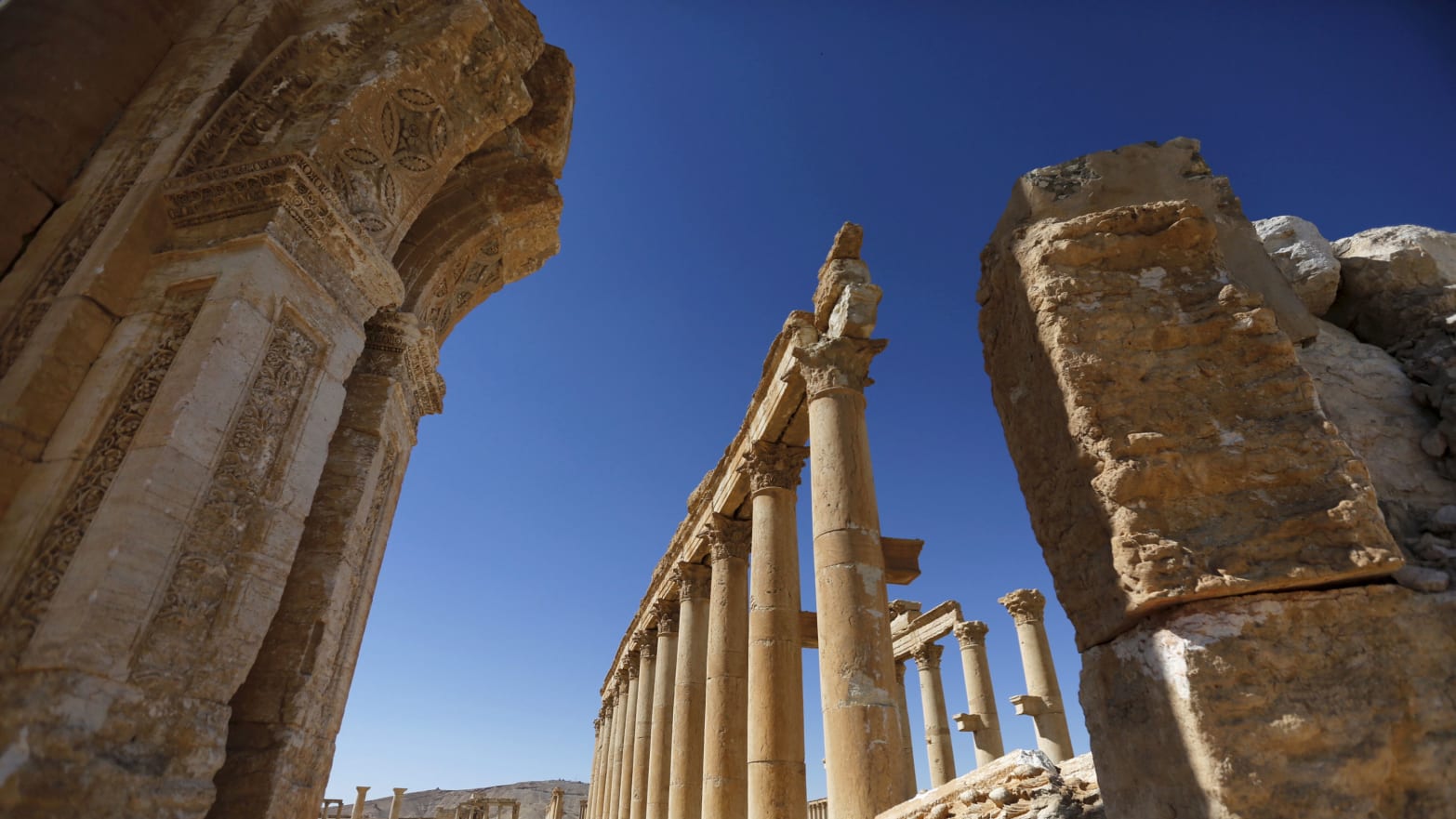Facebook has shut down 49 “loot-to-order” antiquities-trafficking pages selling bespoke artifacts from war zones to clandestine collectors, in response to a two-year BBC investigation.
The BBC probe, published Thursday, found that looters were smuggling everything from ancient statues to Roman mosaics out of Iraq and Syria into Turkey, where they could be sent to the buyers who ordered them through the social-media pages.
Archeologist Amr Al-Azm, who is a professor at Shawnee State University in Ohio, worked with the BBC to expose the racket. He had previously co-authored a lengthy report on the subject published by World Politics Review last year.
Al-Azm found pictures of mosaic floors still embedded in the ground in Syria, which were offered with an option for the buyer to choose styles and colors “if available.”
He also showed BBC reporters the Facebook pages offering any number of statues from the looted ancient city of Palmyra, implying that the Islamic State terror group fighters had not destroyed all the antiquities there. Some 70 percent of all artifacts purported to come out of Syria are fakes, but the Facebook sites guaranteed authenticity.
“What we’ve seen is an explosion of sites and users on Facebook,” he told the BBC. “It’s transnational and Facebook is essentially allowing this to happen on its watch.”
Al-Azm told the BBC that buyers are often working on behalf of anonymous collectors across the world, including some in the U.S. who are looking for rare art from war-torn areas that might easily be written off as destroyed. As such, the provenance of the artifacts will more easily escape notice.
The BBC found that several sites offered a way for buyers to ask for specific antiquities. “In one case, Facebook administrators ask for Islamic-era manuscripts to be made available in Turkey,” the BBC reports. It is not clear if the purchase and delivery was carried out.
“It’s really opened our eyes to how accelerated these trafficking networks are,” researcher Katie Paul told the BBC. “Now if you dig something up in your backyard and you don’t know a trafficker, you can hop on Facebook, share pictures of what you’ve found and connect with people who are willing to buy it.”
The Facebook pages were a way for traffickers to meet buyers who then conducted the official business of the illegal transactions privately.
After the BBC asked Facebook for a response to their investigation, they removed 49 sites.

